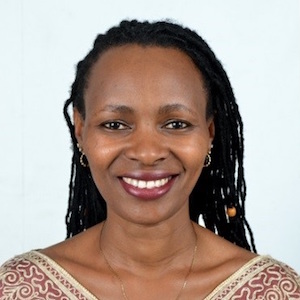Bio
Dr. Roseanne Njiru is a lecturer in the Department of Social Sciences and Development Studies at The Catholic University of Eastern Africa. She holds a PhD in Sociology (2015) and a Graduate Certificate in Human Rights (2014), both from the University of Connecticut, USA. She received a Master’s in Sociology in 2005 from the University of Nairobi, Kenya. Her research interests are in gender, health, human rights, forced migration (internal displacement), peace, and security. Her doctoral research is on gendered HIV transmission in marriages in Kenya. She has also widely researched on Kenya’s electoral violence, human rights of displaced persons, and the politics of internal displacement. She has published a book and articles on these research areas. Dr. Njiru is actively engaged in the University of Nairobi-UNESCO Chair on Human Rights’ program on “Universities for a Sustainable Culture of Peace and Security” where they research and conduct capacity building on peace and security. She has contributed a book chapter on the “Right to water, peace, and security for sustainable livelihoods in Turkana County, Kenya” currently under review by University of Nairobi Press.
Her recent publications include, “Outsiders in their own Nation: The Politics of ‘Internal’ Displacement in Kenya” in Current Sociology Monograph (2018), and “‘As a Woman I Cannot Just Leave the House’: gendered spaces and HIV vulnerability in marriages in Kenya” (with Bandana Purkayastha) in Journal of Gender Studies (2017).

